Imagine unearthing a treasure chest, not beneath the soil, but amidst the bustling rain-kissed streets of the Emerald City.
Seattle startups are that trove of innovation, vibrant in the Pacific Northwest’s tech tapestry, and they’re reshaping the entrepreneurial landscape, one disruptive idea at a time.
In this deep dive, we’ll navigate the intricacies of this burgeoning ecosystem, from the plethora of seed funding opportunities to the networks that bind the Seattle tech scene.
You’re standing at the precipice of opportunity – whether you’re a bright-eyed entrepreneur or an investor with an eye for potential, there’s something in the air here that can’t be ignored.
By the article’s end, you’ll grasp not just why this city’s startup culture is a beacon for business growth, but also how you might plant your own roots in its fertile ground.
Expect insights into Seattle’s co-working spaces, technology hubs, and the all-important startup events where tomorrow’s giants are born.
We’re stitching a narrative of progress, community, and bold dreams. Buckle up; it’s quite the ride.
Seattle Startups
| Startup | Industry/Sector | Founding Year | Primary Service/Product | Founders |
|---|---|---|---|---|
| Karat | HR Tech | 2014 | Technical Interview Platform | Mohit Bhende, Jeffrey Spector |
| Loftium | Real Estate | 2017 | Home Rental & Financing | Yifan Zhang, Adam Stelle |
| Convoy | Logistics | 2015 | Digital Freight Network | Dan Lewis, Grant Goodale |
| Swiftly | Public Transit Tech | 2014 | Transit Data Analytics | Jonny Simkin, Mike Smith, Will Dayton |
| Flexe | Logistics/Tech | 2013 | On-Demand Warehousing | Karl Siebrecht, Francis Duong, Edmond Yue |
| Ally.io | Business Software | 2018 | OKR (Objectives and Key Results) Software | Vetri Vellore |
| Arrived Homes | Real Estate | 2019 | Real Estate Investment | Ryan Frazier, Kenny Cason, Alejandro Chouza |
| Jobscan | HR Tech | 2013 | Resume Optimization Tool | James Hu |
| Highspot | Sales Software | 2012 | Sales Enablement Platform | Robert Wahbe, Oliver Sharp, Scott Gellock |
| First Mode | Engineering | 2018 | Industrial Engineering Services | Chris Voorhees, Rhae Adams |
| Core Scientific | Blockchain | 2017 | Blockchain Infrastructure | Kevin Turner, Darin Feinstein |
| Legalpad | Legal Tech | 2019 | Work Visa Solutions | Sara Itucas, Todd Schulte |
| WeMeta | Real Estate Tech | 2021 | Virtual Real Estate Platform | Lorne Sugarman, Alejandro Laplana, David Carrico |
| Assurance IQ | InsureTech | 2016 | Insurance Platform | Michael Rowell, Michael Paulus |
| Outreach | Sales Software | 2014 | Sales Engagement Platform | Manuel Medina, Gordon Hempton, Andrew Kinzer, Wes Hather |
| OctoML | AI/ML Software | 2019 | Machine Learning Deployment Platform | Luis Ceze, Jason Knight, Thierry Moreau, Tianqi Chen, Jared Roesch, Amanda Casari |
| Clobotics | AI/Computer Vision | 2016 | AI-Powered Inspections & Retail Solutions | George Yan, Delong Cui |
| Downstream | E-commerce Tech | 2017 | E-commerce Marketing Analytics | Connor Folley, Salim Hamed |
| Qumulo | Data Storage | 2012 | File Data Platform | Peter Godman, Aaron Passey, Neal Fachan |
Karat
 Karat is revolutionizing technical recruiting by making the interview process more efficient and equitable with its Interviewing Cloud. Originating in 2014, Karat has since flourished in Seattle, employing hundreds and securing $169.1 million in venture funding.
Karat is revolutionizing technical recruiting by making the interview process more efficient and equitable with its Interviewing Cloud. Originating in 2014, Karat has since flourished in Seattle, employing hundreds and securing $169.1 million in venture funding.
What they stand out for:
- Pioneering digital interview platforms.
- Enhancing software industry diversity.
Loftium
 Loftium’s innovative model uses Airbnb to make housing more affordable in Seattle. Managing guest suites with keyless entry, Loftium stands out for revolutionizing cheap living solutions and technology-driven property management.
Loftium’s innovative model uses Airbnb to make housing more affordable in Seattle. Managing guest suites with keyless entry, Loftium stands out for revolutionizing cheap living solutions and technology-driven property management.
What they stand out for:
- Redefining affordable living.
- Tech-forward property management.
Convoy
 Convoy, a standout in the digital freight network space, tackles inefficiencies in the massive trucking sector. Known for their commitment to sustainability and technology, Convoy propels companies towards a greener logistics future.
Convoy, a standout in the digital freight network space, tackles inefficiencies in the massive trucking sector. Known for their commitment to sustainability and technology, Convoy propels companies towards a greener logistics future.
What they stand out for:
- Innovating freight management.
- Promoting sustainable shipping practices.
Swiftly
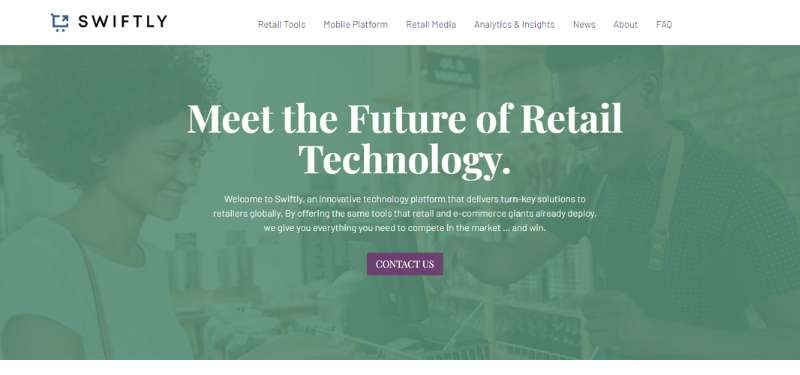 Since 2018, Swiftly has been enhancing retailer-consumer interaction, offering tech services that enable in-store smartphone checkout and personalized offers through machine learning.
Since 2018, Swiftly has been enhancing retailer-consumer interaction, offering tech services that enable in-store smartphone checkout and personalized offers through machine learning.
What they stand out for:
- Retail technology solutions.
- Improving customer digital engagement.
Flexe
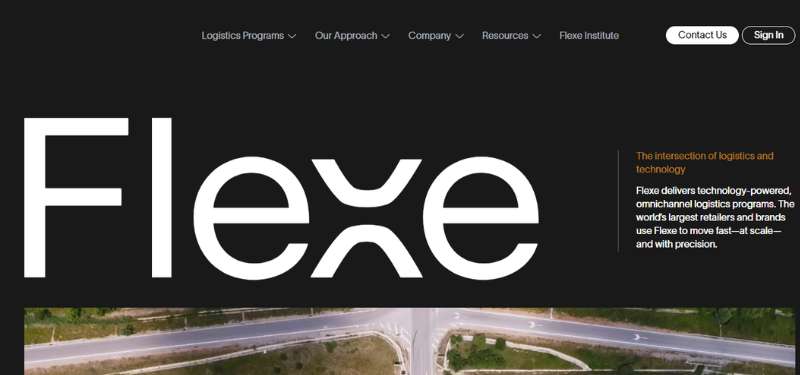 As a leader in on-demand warehousing, Flexe connects businesses with flexible logistics solutions without long-term contracts, revolutionizing inventory and fulfillment management across their vast national network.
As a leader in on-demand warehousing, Flexe connects businesses with flexible logistics solutions without long-term contracts, revolutionizing inventory and fulfillment management across their vast national network.
What they stand out for:
- Pioneering on-demand warehousing tech.
- Streamlining logistics with flexible solutions.
Ally.io
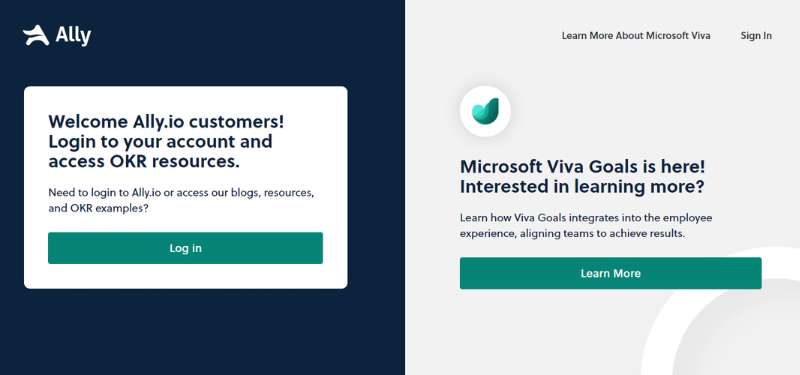 Ally.io excels in execution management software, helping businesses transition to an OKR framework and enhancing staff alignment, transparency, and organizational agility.
Ally.io excels in execution management software, helping businesses transition to an OKR framework and enhancing staff alignment, transparency, and organizational agility.
What they stand out for:
- Advancing objective and key result (OKR) frameworks.
- Boosting enterprise performance.
Arrived Homes
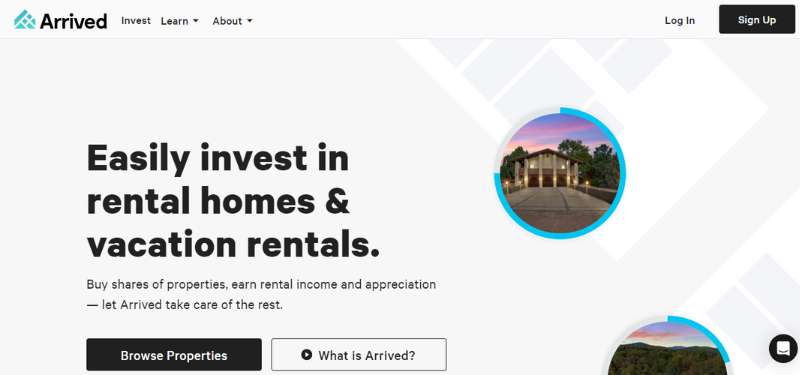 Arrived Homes opens the door to investment in rental properties, simplifying the path to financial freedom for its clients with shareable real estate opportunities, while handling property management end-to-end.
Arrived Homes opens the door to investment in rental properties, simplifying the path to financial freedom for its clients with shareable real estate opportunities, while handling property management end-to-end.
What they stand out for:
- Democratizing rental property investment.
- Simplifying property management for shareholders.
Jobscan
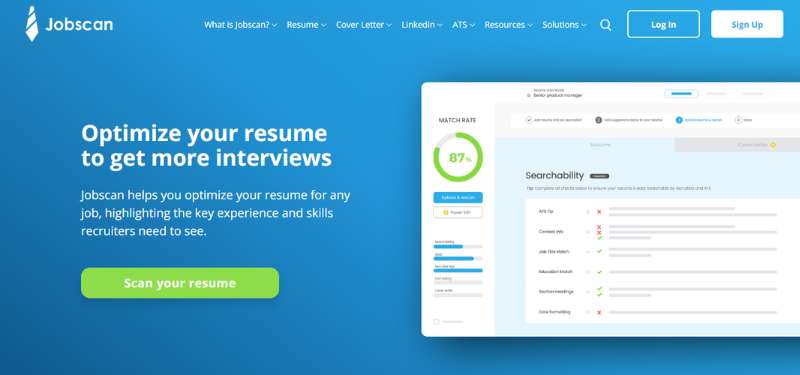 Empowering job seekers with automated resume analysis tools, Jobscan optimizes resumes against job descriptions, enhancing candidates’ chances in the competitive job market.
Empowering job seekers with automated resume analysis tools, Jobscan optimizes resumes against job descriptions, enhancing candidates’ chances in the competitive job market.
What they stand out for:
- Leveraging technology for job search success.
- Resume and LinkedIn profile optimization.
Highspot
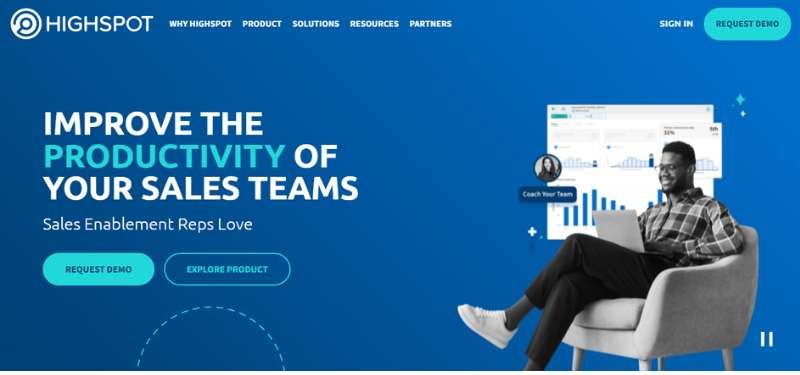 Highspot excels at elevating sales conversations with its integrated platform combining content management, training, and customer engagement analytics, focusing on generating successful business outcomes.
Highspot excels at elevating sales conversations with its integrated platform combining content management, training, and customer engagement analytics, focusing on generating successful business outcomes.
What they stand out for:
- Empowering sales enablement.
- Driving customer dialogues with analytics.
First Mode
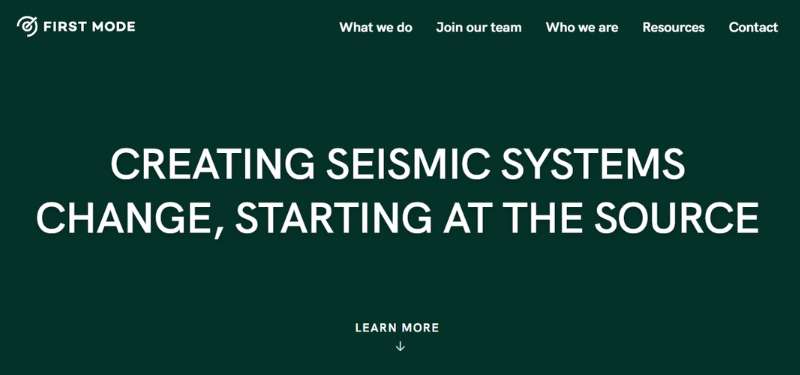 First Mode’s team of engineers specializes in designing innovative solutions for extreme environments — from underground mines to roving space vehicles on extraterrestrial surfaces.
First Mode’s team of engineers specializes in designing innovative solutions for extreme environments — from underground mines to roving space vehicles on extraterrestrial surfaces.
What they stand out for:
- Engineering for harsh environments.
- Innovating across industries and planets.
Core Scientific
 Core Scientific leads the field in blockchain and AI hosting, empowering data processing, sharing, and storage advancements in various industries with their scalable and adaptable platform.
Core Scientific leads the field in blockchain and AI hosting, empowering data processing, sharing, and storage advancements in various industries with their scalable and adaptable platform.
What they stand out for:
- Innovating in blockchain and AI infrastructure.
- Shaping the future of data operations.
Legalpad
 Legalpad simplifies the work visa application process for startups, merging legal expertise with technology to help entrepreneurs and businesses navigate immigration challenges efficiently.
Legalpad simplifies the work visa application process for startups, merging legal expertise with technology to help entrepreneurs and businesses navigate immigration challenges efficiently.
What they stand out for:
- Revolutionizing work visa applications.
- Combining legal expertise with tech automation.
WeMeta
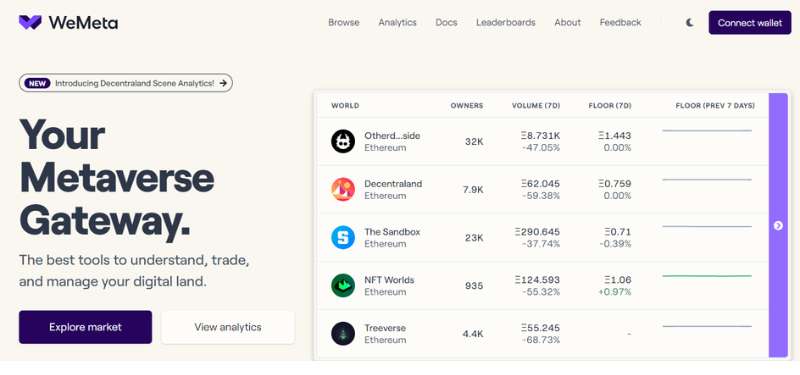 WeMeta facilitates buying and selling of NFT land in the metaverse, offering user-friendly tools and insights into the digital real estate market for more informed metaverse investments.
WeMeta facilitates buying and selling of NFT land in the metaverse, offering user-friendly tools and insights into the digital real estate market for more informed metaverse investments.
What they stand out for:
- Exploring digital real estate in the metaverse.
- NFT land marketplace innovation.
Assurance IQ
 Assurance IQ is advancing the accessibility of financial wellness solutions, employing advanced tech to bring simple and personalized insurance and financial services to a broad audience.
Assurance IQ is advancing the accessibility of financial wellness solutions, employing advanced tech to bring simple and personalized insurance and financial services to a broad audience.
What they stand out for:
- Democratizing financial wellness.
- Personalizing insurance tech services.
Outreach
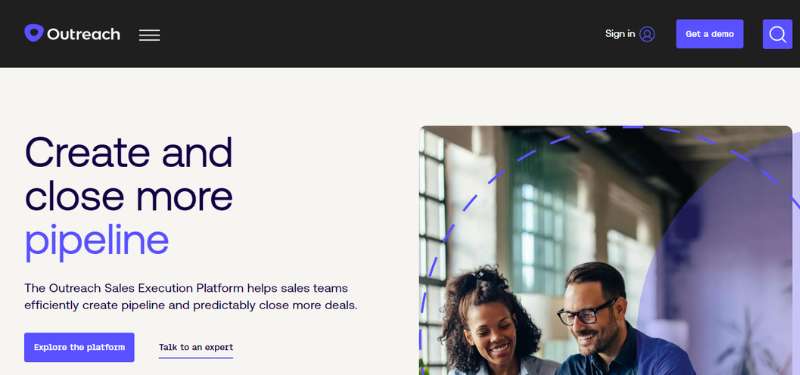 Outreach’s Sales Execution Platform enables revenue teams to apply intelligence to their processes, providing a comprehensive view of the revenue cycle and fostering confident forecast commitments.
Outreach’s Sales Execution Platform enables revenue teams to apply intelligence to their processes, providing a comprehensive view of the revenue cycle and fostering confident forecast commitments.
What they stand out for:
- Enhancing sales execution with AI.
- Integrating sales engagement and intelligence.
OctoML
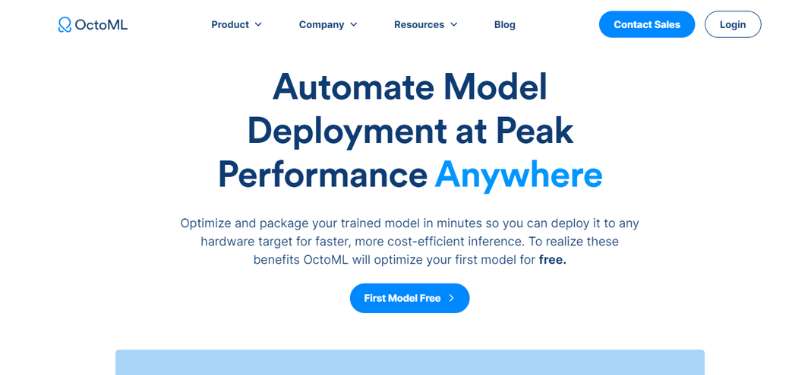 OctoML democratizes AI deployment, offering developers a machine learning model optimization and delivery platform that levels the playing field for businesses without extensive AI resources.
OctoML democratizes AI deployment, offering developers a machine learning model optimization and delivery platform that levels the playing field for businesses without extensive AI resources.
What they stand out for:
- Democratizing AI for developers.
- Optimizing AI model deployment.
Clobotics
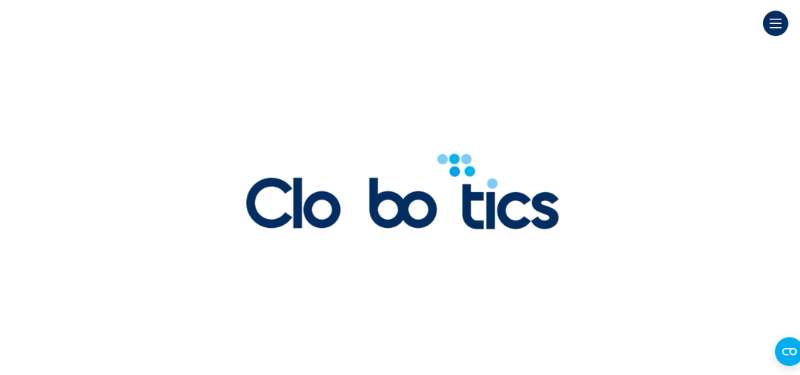 Clobotics is carving a niche in computer vision solutions for retail and wind industries, providing actionable data insights to transform operational efficiency and profitability.
Clobotics is carving a niche in computer vision solutions for retail and wind industries, providing actionable data insights to transform operational efficiency and profitability.
What they stand out for:
- Computer vision and AI solutions.
- Retail and wind industry innovation.
Downstream
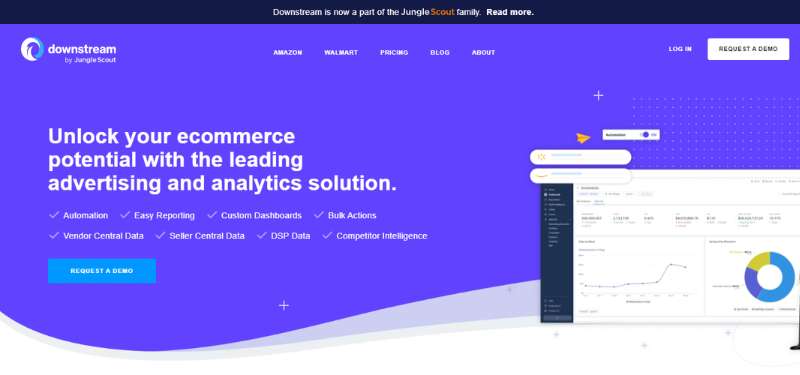 Downstream, also known as Downstream Impact, develops Amazon advertising software, helping brands maximize their Amazon marketplace presence and optimize advertising strategies.
Downstream, also known as Downstream Impact, develops Amazon advertising software, helping brands maximize their Amazon marketplace presence and optimize advertising strategies.
What they stand out for:
- Amazon ad platform optimization.
- Boosting marketplace visibility and sales.
Qumulo
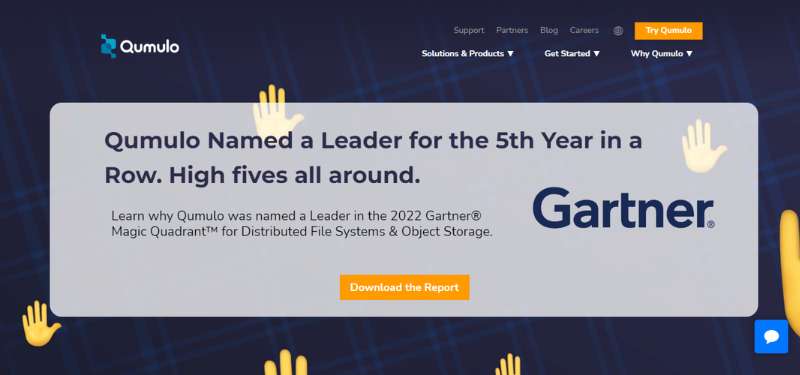 Qumulo offers a multi-cloud data storage solution that delivers innovative features simplifying data management and ensuring customer success with their accessible expert support.
Qumulo offers a multi-cloud data storage solution that delivers innovative features simplifying data management and ensuring customer success with their accessible expert support.
What they stand out for:
- Streamlining multi-cloud data storage.
- Introducing user-centric storage innovations.
98point6
 98point6 is reshaping primary healthcare by combining technology and medical expertise to deliver on-demand virtual consultations, making quality care accessible and affordable.
98point6 is reshaping primary healthcare by combining technology and medical expertise to deliver on-demand virtual consultations, making quality care accessible and affordable.
What they stand out for:
- Tech-enhanced primary healthcare delivery.
- Offering on-demand virtual medical consultations.
FAQ On Seattle Startups
What Fuels Seattle Startups’ Tech Scene?
Seattle’s got this electric feel, right? It’s not just the coffee. The tech scene here? Fueled by giants like Amazon and Microsoft, and a ton of angel investors ready to back the next big thing.
Mix in top-notch unis like the University of Washington, and you’ve got a recipe for tech innovation.
Where Are Seattle Startups Primarily Located?
Okay, so picture this: neighborhoods like South Lake Union and Pioneer Square, filled with passionate folks laser-focused on the next disruptive concept.
It’s not just a vibe; it’s where the startup magic is happening. Those streets are humming with potential, a real hotbed for emerging companies.
What Resources Are Available for Seattle Entrepreneurs?
Resources? More like a buffet. There’s this supportive network including startup accelerators like Techstars Seattle, and dare I say, a smorgasbord of co-working spaces.
Plus, events? They’re everywhere – from pitch sessions to workshops. Basically, it’s all there to transform your startup dream into reality.
How Does the Seattle Startup Ecosystem Support Diversity?
Diversity isn’t just a buzzword here. It’s the future. Programs targeting women, people of color, you name it.
They’re nurturing an inclusive tech community. It’s that diverse lifeblood that keeps creative juices flowing and keeps the Seattle business ecosystem revolutionary.
What Kinds of Startups Thrive in Seattle?
Oh, it’s a rich tapestry! But, hit pause on that thought that it’s just tech savvy companies making waves. Seattle loves its green-tech, biotech, and everything innovative.
If your startup can dream it, and it’s got that killer mix of tech and forward-thinking, Seattle’s where you want to be.
How Competitive Is the Seattle Startups Landscape?
Think of it like the ultimate chess game, but friendlier, with less scheming. It’s competitive, sure, but it’s like a community event where everyone’s eager to network, learn, and grow together.
You got a fresh idea, matched with grit? You’re all set to make your move here.
How Have Seattle Startups Adapted to Remote Work Trends?
Adapted? More like embraced with open arms. Even before ‘you-know-what’ hit, many Seattle tech startups were already riding the digital marketing wave.
Now? Remote’s almost the new normal. Flexibility and technology are like the bread and butter for these startups’ sustainable growth.
What Role Do Universities Play in Seattle’s Startup Culture?
Never underestimate the brainpower brewing in universities. Think of the University of Washington as a catalyst. It’s churning out not just grads but fresh, bold ideas.
And it’s not just about talent; these academic hubs are the connective tissue linking research, innovation, and commercial success.
How Are Seattle Startups Impacting the Global Market?
It’s the ripple effect – starts small, spreads wide. Seattle’s best are building solutions, disrupting norms, and guess what? The world’s watching.
Some really game-changing products and services are reaching out, touching markets far beyond the shadow of the Space Needle.
What’s the Future Look Like for Seattle Startups?
Buckle up for this: The future’s as bright as a thousand fireflies on a clear summer night. Sustainability, technology advancement, global reach – you name it.
You can literally feel the pulse of potential here, promising an era of continuous growth and mind-blowing innovation.
Conclusion
As our venture through the dynamic world of Seattle startups reaches its coda, let’s pause and reflect, shall we? We’ve seen how this corner of the Pacific Northwest isn’t just lush with evergreens—it’s teeming with business ingenuity. It’s a domain where risks are embraced like old friends, and cutting-edge ideas hurry through the streets as eagerly as the city’s famed rain.
From the incubators to the tech giants, from the humming co-working spaces to the game-changing meetups, this city has carved out a sanctuary for startups. Here, nurturing networks blend with a spirit of innovation that’s as bold as the Olympic Mountains.
And so, as you step back into the broader world, carry the essence of Seattle’s startup ecosystem with you. Let it be a beacon—a reminder that amidst the clatter of everyday commerce, there truly are places where dreams are distilled into reality, one startup at a time.
If you liked this article about Seattle startups, you should check out this article about Atlanta startups.
There are also similar articles discussing Austin startups, Detroit startups, Bay Area startups, and Boston startups.
And let’s not forget about articles on New York City startups, Los Angeles startups, Israel startups, and Cincinnati startups.





